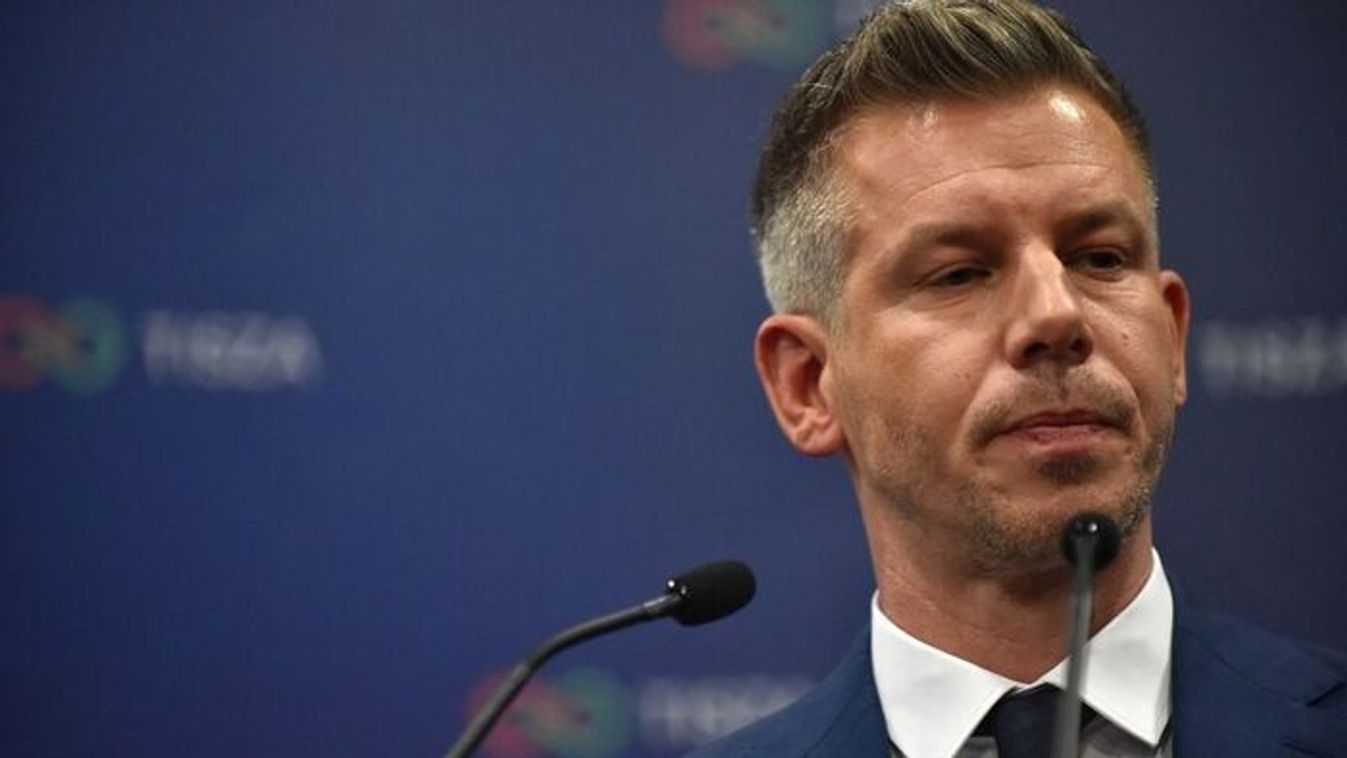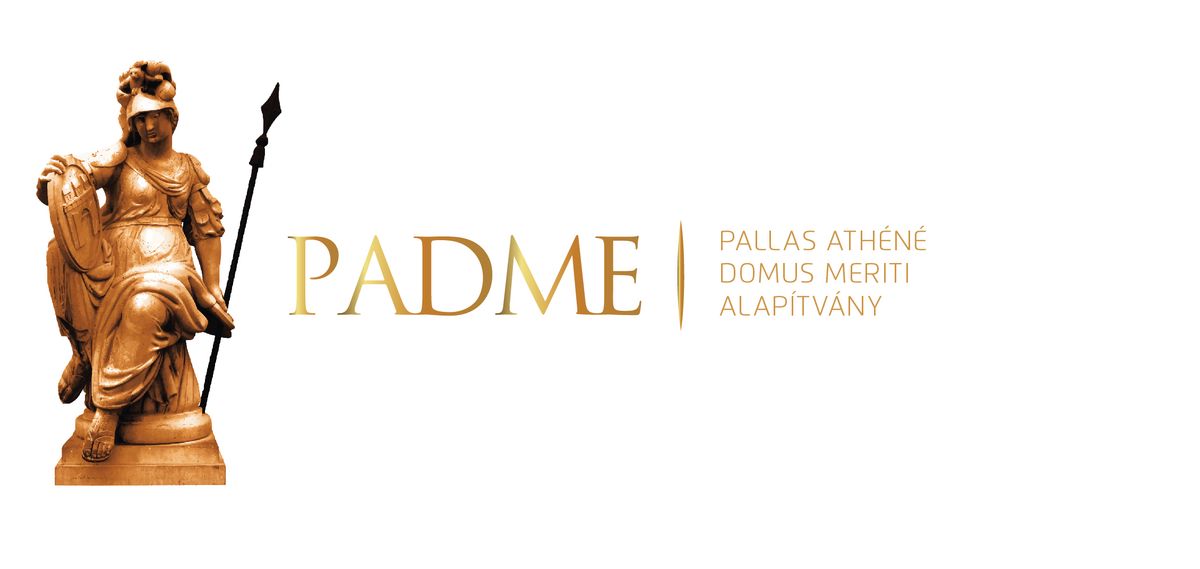Kellemetlen: elhangzott az eddigi legfontosabb mondat Magyar Péter rejtélyes videójáról

Bár a drogos bulibotrány nagyon zavaros, az biztos: Magyar Péter zsarolható – mutatott rá az elemző.

Europe urgently needs to understand that it’s being catastrophically left behind in the field of new technologies. This is where the Central European countries could take the lead by help European tech companies set up R&D- and manufacturing facilities there – Dr. Lennart Brandt pointed out in a conversation about the crises in Europe, the positive implications of Brexit, the uniqueness of a European way of life and situation of Central Europe.

Lennart Brand, Managing Director of the Leadership Excellence Institute of Zeppelin University, Lake Constance, Germany. He pursued a career in the aviation industry before taking his D.Phil. at the University of Oxford (St. John's College). He joined Zeppelin University in 2012 and was appointed to his current position in 2015. In 2018, he also became Managing Director of the Lake Constance Innovation Cluster Digital Transformation.

The legendary song “Wind of Change” from the West German rock band, Scorpions turns 30 this year. For many of us, this song stirs vivid memories of the fall of the Berlin Wall along with the end of the Soviet military occupation of the Central European countries. This was not only the moment of the long-awaited German unification, but Europe also regained their barricaded parts, countries and regions. Central European countries could once again look at Europe as their own future. How do you think back to this period?
Curiously it’s been only much later that the full significance of those events has come home to me. Back in the late 80s and early 90s,
we lived in a Western European cocoon which was so well-padded that even world-historical events could scarcely pierce it.
Subsequently, that padding got increasingly worn away, and it was only then that I and many others really, fully understood the true meaning of “1989” beyond the obvious.
Nevertheless, the past thirty years of the European history have not always been as hopeful. In fact, the reality is that Europe is in decline in terms of their reproduction rate, defense spending as well as their weight in the global economy. What did in your view lead to this decline over the decades?
As a matter of fact, I’m quite open to the idea that decline is only half the story. If we adjust our perspective in line with my favorite philosopher, Nietzsche, it is quite conceivable that what we experience as decline is really a metahistorical shift rather than sheer destruction. Back in his day, Nietzsche attributed the decline he perceived to an all-powerful nihilism permeating and destroying Western culture and civilization from within. But he wasn’t a pessimist! Once we hit bottom, he said, we’ll actually overcome that nihilism and enter a new era, a new paradigm. The most interesting implication of his argument is that what appears as the destruction of our heritage may, at the same time, constitute the very growth of that new paradigm, whose outline we cannot discern yet but which carries all the historical substance previously contained in our Western traditions. – Now, this is a very protracted answer to a simple question, but I’ve always felt that there’s much more to history than what meets the eye. And my guess is that, if Nietzsche was right, that new paradigm will be heavily informed by technology. Actually, this is what another of my favorite thinkers, Ernst Jünger, predicts.
We need that kind of optimism as it seems that the European integration has been experiencing a decade long crises: the financial crises, the migration crises, the loss of one of its key Member States, and now the devastation of the pandemic with its terrible health and economic consequences. Some of the times it seems that EU wish to solve all the problems of the world but ends up being unable to help its own Member States. How would you assess the responses to the crises as well as the overall operation of the European Union?
It seems to me that since the Maastricht Treaty, the EU has shown a tragic propensity to put carts before horses. Take political integration. What the EU institutions should have done is encourage and support – with a very light touch! – multilateral cooperation between sovereign members states. Such cooperation would then lead to the growth of common interests and common values which would ultimately, at its own speed, become an ever-sounder basis for deepening political integration. – Instead, the EU has done exactly the opposite. It went to the drawing board to devise what it supposed were “European values” and “European interests”, forcing them down members states’ throats and hoping they may somehow catch on and become a basis for political integration. But they didn’t catch on, and, thus, the EU remains incapable of actually acting politically – as opposed to bureaucratically – which becomes particularly evident in emergencies such as the Covid crisis.
As a result of Brexit, the EU lost one of its strategically important Member States and the second largest economic power in Europe. In a recent conversation, the British historian and writer Keith Lowe pointed out that the UK has always been a powerful voice against further political integration. He added that without that powerful voice, the other member nations will either progress faster towards ‘ever closer union’, or someone else will have to step into the UK’s shoes. How do you see the impact of Brexit on the EU?
If Brexit is a success – economically, but also politically – it could have a twofold positive effect on Europe. For one thing, the EU can no longer take their members for granted. It would actually have to make a positive effort to persuade people that the Union benefits them, also by respecting national interests and national cultures. For another thing, a successful independent Britain could be a free-market role model for an increasingly overregulated, big-state EU. People within the EU may then wake up to the fact that wealth and well-being are not reliant on rules, regulation, and bureaucracies, but rather the opposite.
However, aside from the divisions and quarrels, there are bonds that tie Europeans together. In a recently held conference François-Xavier Bellamy, Member of the European Parliament pointed out that Europe is not only an international organization like the UN or any others, she is a culture. Furthermore, there are ongoing debates and consideration about the need to promote or cherish a European way of life. What in your view may connect all Europeans – in and outside of the EU – and what makes the European way of life unique?
Very clearly, the element that connects Europeans – and, incidentally, any other individuals informed by European culture – is a certain unconstrained spontaneity of thought: a certain inner freedom to lose yourself in the contemplation of possibilities, while at the same time taking things very seriously for their own sake and following through to the very end. Homer’s or Chrétien de Troyes’ heroes or – in real life – Marco Polo, Christopher Columbus or, say, Captain Scott – they all illustrate this convergence of playfulness and Faustian wholeheartedness that has been the one elementary feature of the European mind from the beginning. Everything else – aesthetics, science, politics, philosophy – can be deduced from it. To give you a recent example: There’s a hugely interesting interview with the young Steve Jobs on YouTube where he explains how Apple developed the Mackintosh. And what he says is this:
“ultimately, it comes down to taste”.
Not to technology, not to engineering, but to taste! And then he goes on telling us that developing the Mackintosh was a liberal-arts effort, with musicians, historians and what have you contributing their knowledge to what was to epitomize the greatest achievement of high technology in its day. This is a perfect example for what I think gives European culture all over the world its unique character.
The upcoming Conference on the Future of Europe aspires to provide a forum for discussion about the potential reforms of the EU as well as about the future of the European continent. We began our conversation by recalling the story of the legendary song, the “Wind of Change”. What changes and fresh ideas would you think the EU should now pursue in the face of these crises period? What are the values that it should embrace to make their continent and their countries flourishing, competitive and proud?
In terms of fresh ideas, I think Europe urgently needs to understand that it’s being catastrophically left behind in the field of new technologies, and that this will banish it to the sidelines not just economically but also politically. As for artificial intelligence, it has now irreversibly fallen behind the US and China, but there is still a chance it could achieve technology leadership in areas such as space travel or robotics. Essentially,
European industry needs to be encouraged to massively invest in R&D in these fields.
Less red tape and lower taxes would be a start. In fact,
this is something where the Central European countries could take the lead.
Imagine an orchestrated effort of those countries to help European tech companies set up R&D- and manufacturing facilities in Central Europe. This would not only require a generous tax regime, de-regulation, and infrastructure, but above all an academic ecosystem within which such research could flourish. I’m thinking of a joint Central European university, massively funded by several governments as well as industry and concentrating upon those technologies in which Europe might actually be a front-runner. A kind of Central-European Stanford within an emerging Central European Silicon Valley, a university whose labs collaborate with businesses in churning out technologies that catapult Europe to the forefront and change the world. But I’m not merely thinking of a solely technical university. Rather, such a university would combine technology leadership with cultural and ethical leadership, thereby becoming an institution and a place where the big issues confronting Europe are being discussed, and where Europeans would look for the solutions that really count. It might also be an agora where values are being discussed – where traditional values are being revisited and reinterpreted in the light of technological advances, and where technological advances give rise to new values.
***
A cikk a Pallas Athéné Domeus Educationis Alapítvány támogatásával valósult meg.
